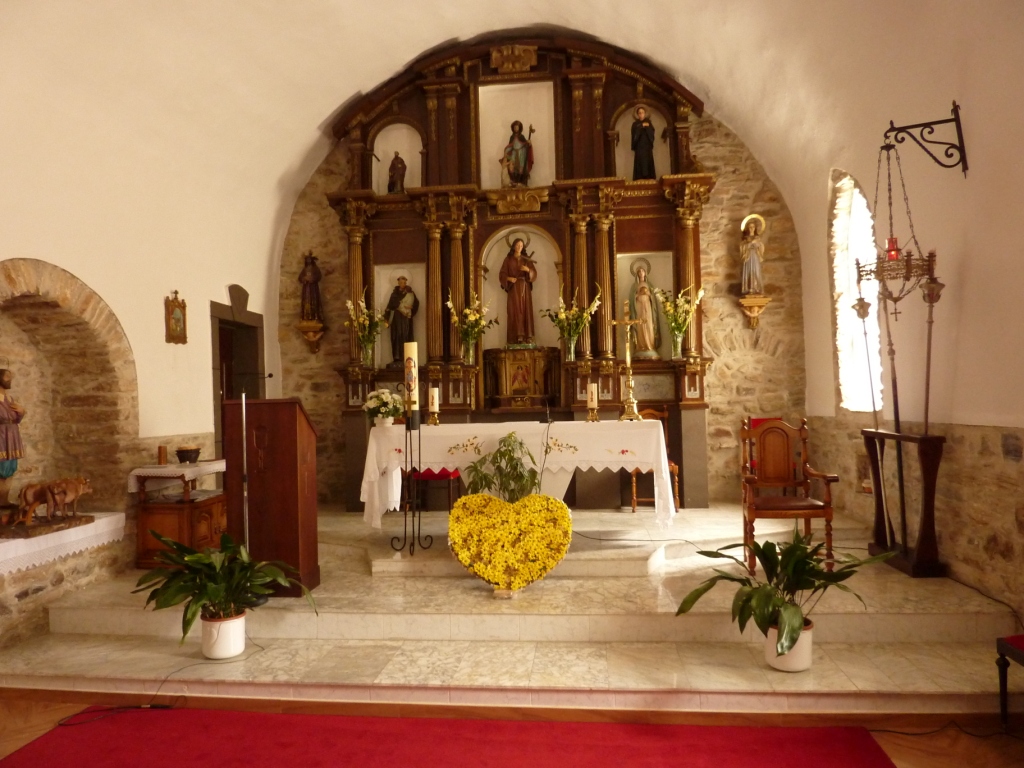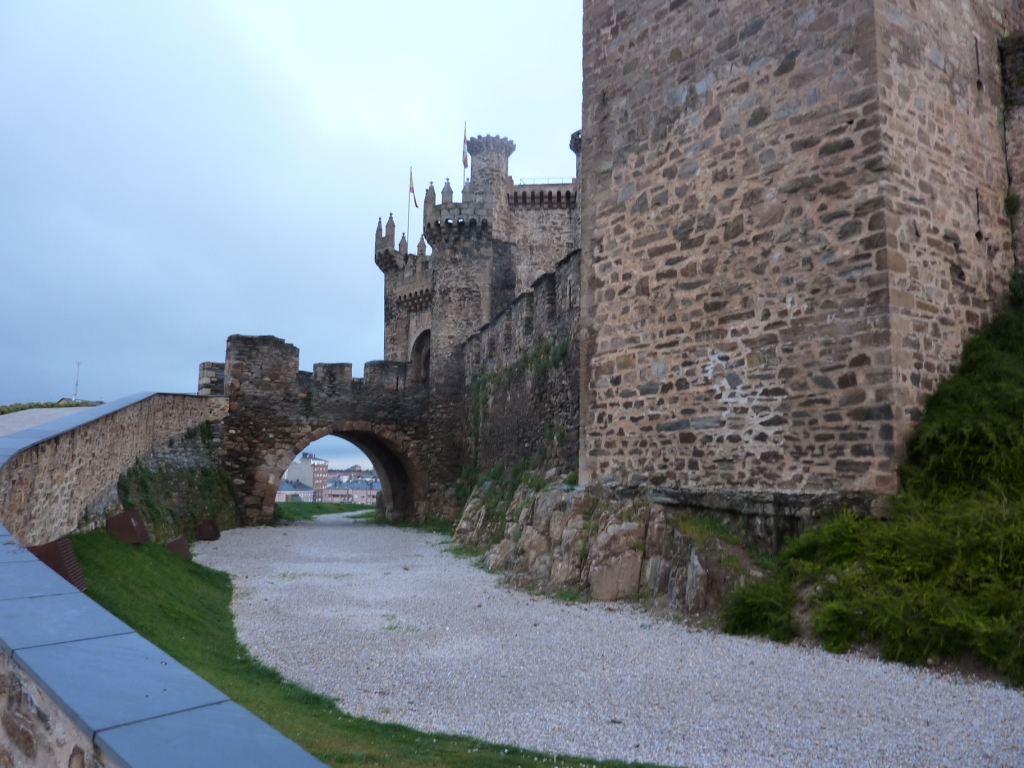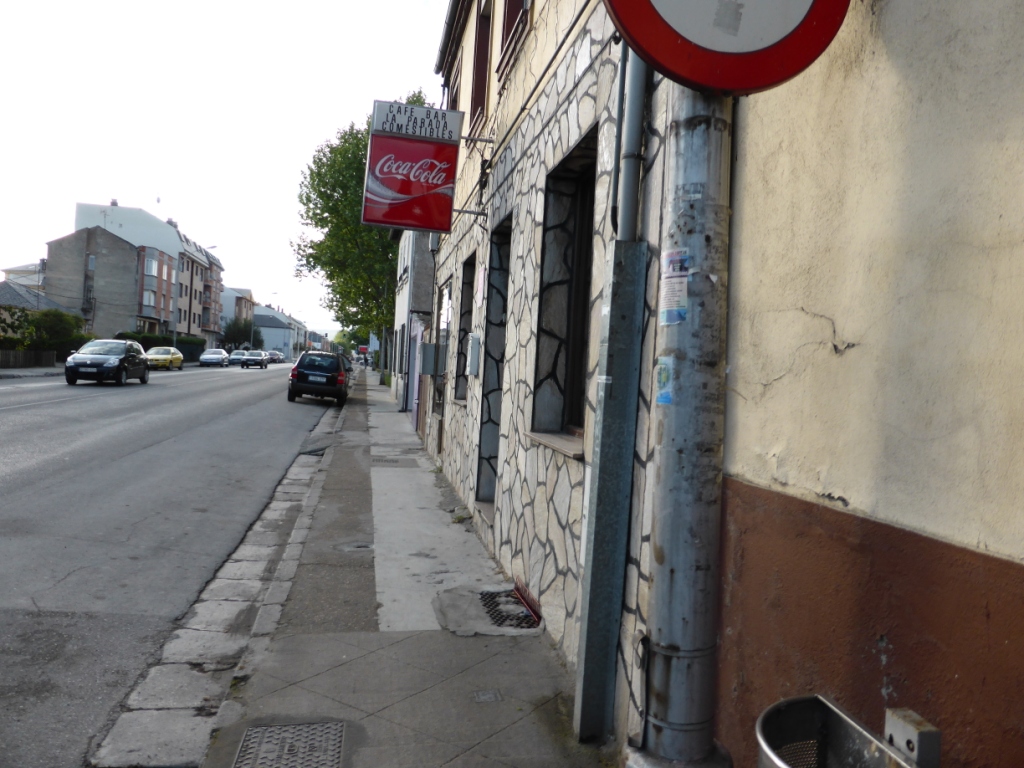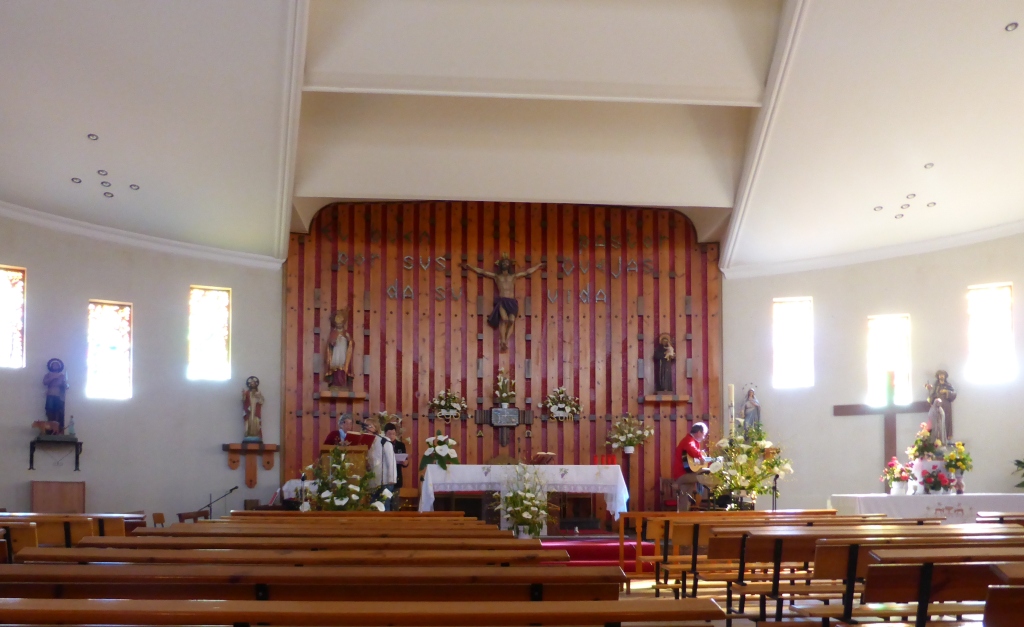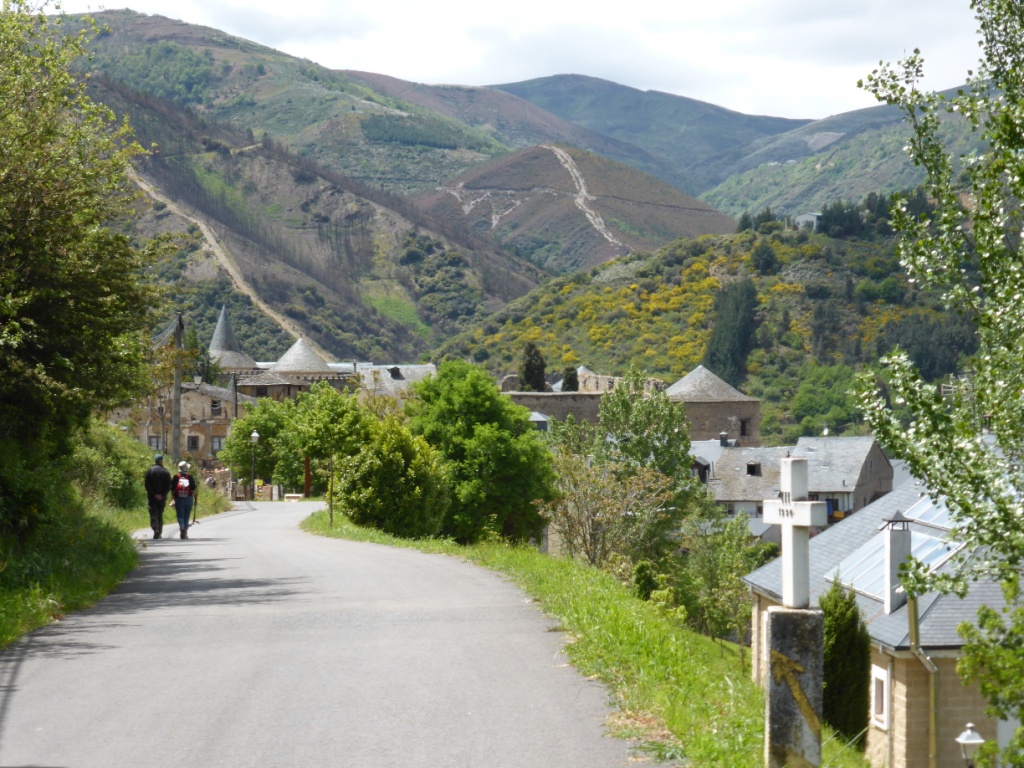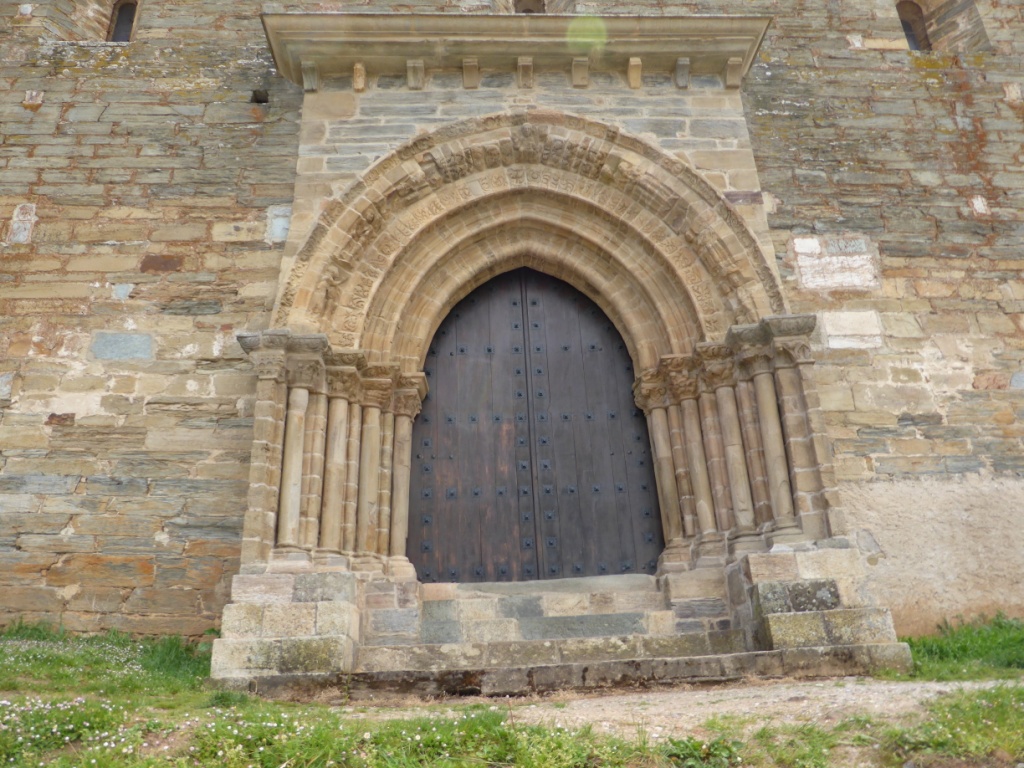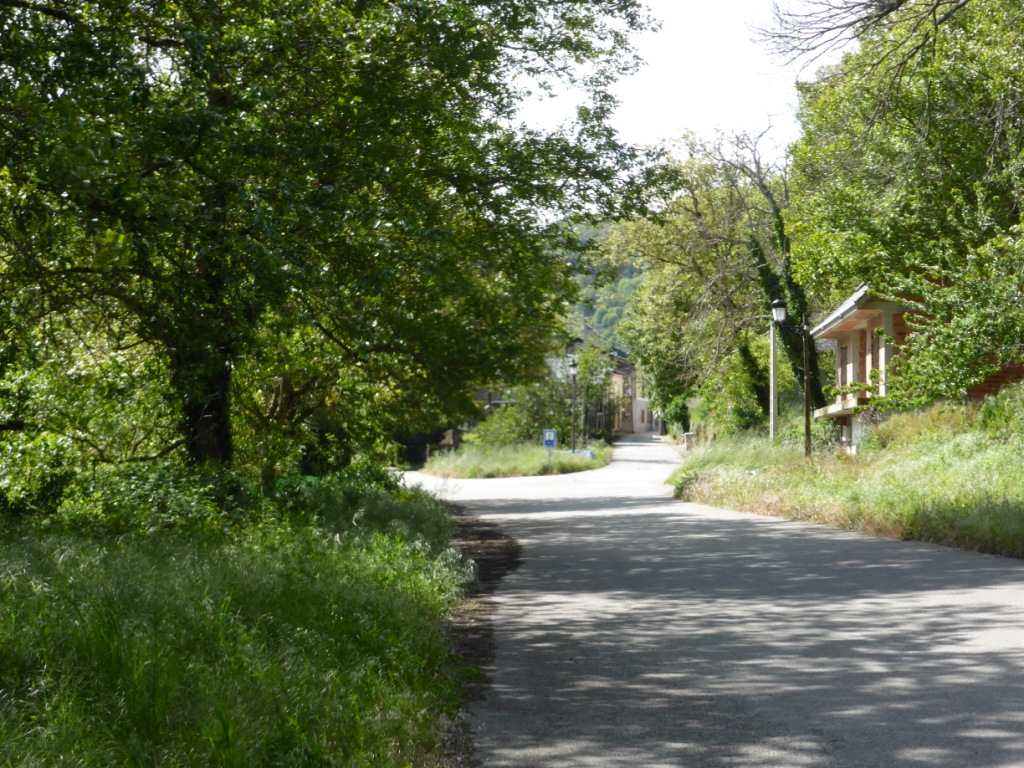Miracles. Two Days on the Camino Francés: Ponferrada – Hospital da Condesa (1)
Day 1. Ponferrrada – Pereje
Some days a rucksack is much heavier than the day before, even though it is carrying less; and some days legs which had happily and silently been gliding along like a Rolls Royce in a cortège creak and groan and puff like the Vital Spark.
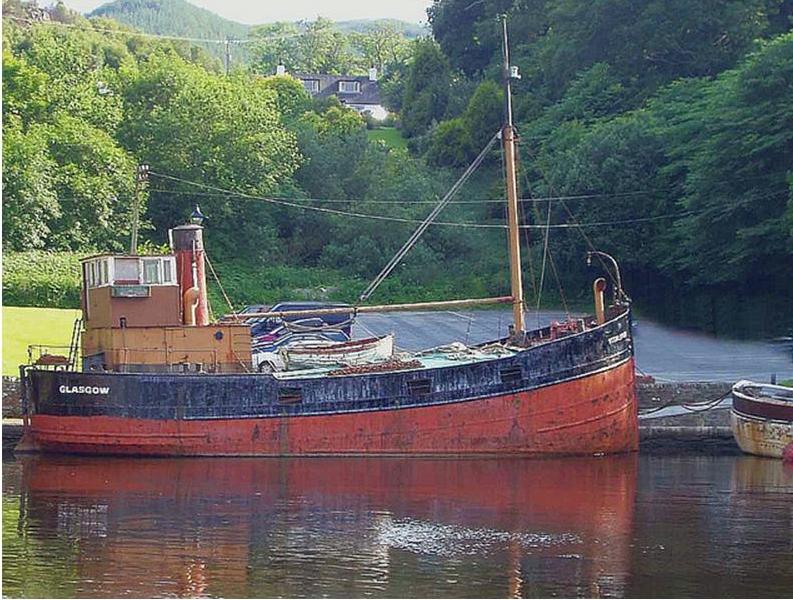
The Vital Spark The creaking groaning puffer of Para Handy. Photograph by kind permission of Alan Kempster https://flic.kr/p/8DCCt7
The day I set off from the pilgrims’ hostel in Ponferrada was one such day. The hostel is very good indeed but was packed full. My dormitory filled up after lights out with Italians about to begin their Camino. Between their first-night excitement and the early-rising Austrians my night’s sleep was very short. The voluntary hospitaleros offer a short evening prayer in the adjacent sanctuary. The prayers are said in many languages and many pilgrims leave prayer requests written in the visitors’ book. I should have put in a prayer request that I be patient, kind and tolerant of Italians and Austrians, that I see only the positive in our cultural differences ( like tagliatellis and pretty girls in dirndls) and that I don’t mislay my ear plugs. That would be too much of a miracle to ask for and, anyway, I don’t ask for miracles and signs. They are graces which are scattered in our Path by One who loves us to be noticed and discovered rather than requested.
Praying did nothing for my complete lethargy the following morning. My spirit was heavy, my legs were heavy, even my hat was heavy. The Castle, too, was heavy, a huge Templar fortress almost blocking the Camino.
The camino has two routes out of the city. I elected the one which passes through the shopping areas and is a bit shorter. As usual, I set off with a desire to spend the day in prayer which at this moment consisted in saying to the Almighty that I was in a bad way and needed a shot of energy. The way out of Ponferrada seemed interminable and after walking only half an hour I gave in to the temptation of the many cafés on either side of the road. I resisted until I came to what seemed to be the last of them all.
Inside it was mainly a shop with a bar. A woman behind the bar greeted me as if she had known me all her life with a warmth which lifted me. “I’m Irèné”, she said and even introduced me to her only customer, a regular visitor it seemed. I hoped that a coffee would revive me. The dueña Irèné served me a large slice of sponge cake which I gladly accepted and ate while answering innumerable questions about my travels and being distracted from my physical woes. I was feeling an urge to continue on my way especially as I had only walked 5 km so far and had a desire to make headway because the day threatened heavy rain. However, when I asked to pay she simply gave me another coffee and a larger bit of cake and said, “Stay a bit longer.” Another customer came in and I was introduced to the newcomer and then to the girl who had come to work behind the bar for the day, and then to the bread delivery man. I left feeling recognised, pampered and included. Irèné, and her customers, had made me rest and even laugh. I had been encouraged not to rush on, but to linger and to share.
As I moved on I said thanks to all and in my inner silence to God. I was sure I had been guided into that bar. My body seemed to have more life in it inspired by this small community whom, I had learned, were suffering badly from the economic crisis. I had been particularly touched when a middle aged tramp had come in and señora prepared him what was clearly to be his lunch and packed it all up for him, adding a few treats before giving it to him with a huge smile. The bar was a mini-social centre and rescue mission. In a sense I, too, had been rescued from dwelling on my physical difficulties. “A bit of a miracle,” I thought.
[mapsmarker layer=”24″]
After another 5km I arrived in Camponaraya, a village which is an outer suburb of Ponferrada which had sprawled on and on. My physical strength was draining again and I saw a church open. There are very few places to sit down on the camino and churches, if they are open, offer rest as well as sacred space. My pauses on the Camino are usually short and I’d already delayed enough in Bar La Parada so I didn’t intend to stay long.
There was obviously some preparation going on for Mass and I wondered what feast day this might be. It turned out to be San Isodoro Labrador, patron Saint of farmers. The church was modern and was being prepared, I thought, for a local festival.
A woman came up to me and asked, “Are you staying for the Mass?”. When I heard it was not yet for another half hour I said, “No, I really have to get on my way.” “Please stay if you can,” she said explaining that the Mass was being broadcast on Radio Maria. She went off and spoke to the priest who approached me. He, too, wanted me to stay. In particular he wanted his parish which stands on the Camino de Santiago to have a pilgrim present for the Mass being broadcast throughout Spain. So I stayed, was prayed for and I read a prayer praying for the parish intentions, and I met the parishioners. One elderly lady, who had been married in the Cathedral in Santiago de Compostella touched me deeply. She was losing her sight and there is no medical solution. She asked me to pray for her saying that miracles do happen. I expect I agreed for she invited me to return to her house to eat with the family.
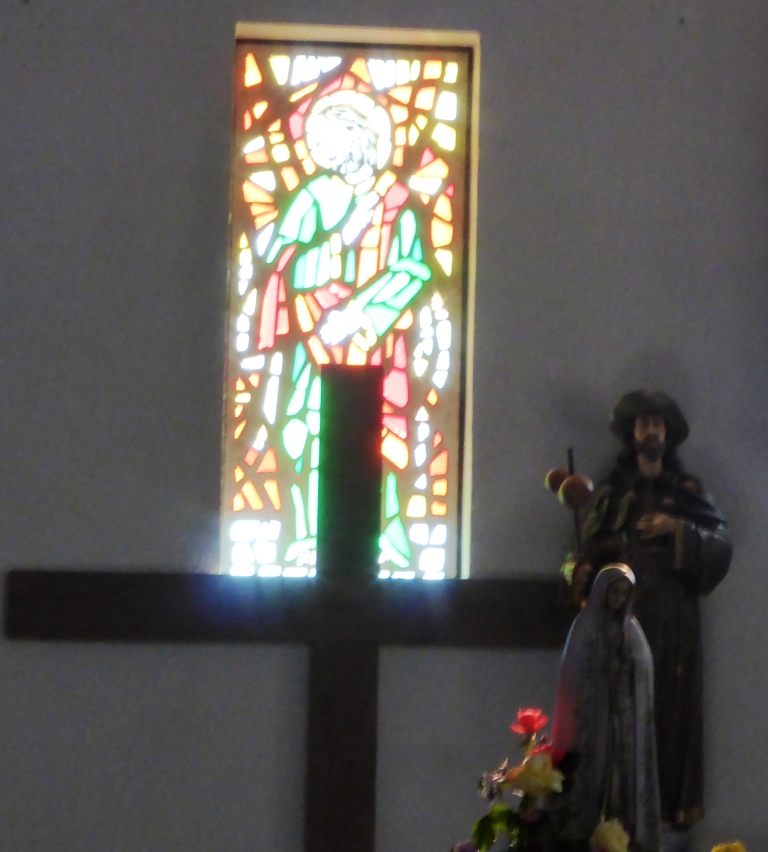
A poor photo, but the statue is Santiago the pilgrim which is taken out each year for the romeria.
Padre Alberto is a dynamic priest, a real pastor, who also plays the guitar and writes his own hymns. There is a link in the caption under the photo above to a video which gives a flavour of the parish on the day of the Romeria this year when the statue of Santiago is carried up the local hillside where a communal meal is celebrated together with traditional music. The Amigos de Santiago and other pilgrims join with the parish in this celebration.
Although the rain clouds were gathering, I had rested. More importantly, for the second time that morning I had found myself absorbed in community. Maybe I had been missing this a lot. I walk alone and had been going for six weeks. When I once more set off on the Camino I knew I had received a great boost. Again I was full of gratitude and wonder. Seemingly out of nothing, I had walked into two very different places where I had been welcomed as I were a gift to their community when, for me, it was the other way round. This, for me, is the stuff of miracles.
The road to Pereje
The rain held off and the sun came out as I reached Villafranca. I had stayed there in 2010 but the hostel had been full and very cramped. I did not fancy another night with noisy Italians so I decided to carry on to the next village even though my aches were returning to haunt my legs and shoulders. I guessed that with a plentiful choice of albergues on this part of the camino there would be a bed left in Pereje. It was only 5 km further on.
This 5 kms, in the end, demanded a great physical effort. The miracles which had lifted my spirits and masked my fatigue could no longer disguise the reality that I was in poor shape. Moreover, I had listened out for the weather forecast against all my good intentions not to plan too much. The following day would see me faced with the longest climb on the Camino Francés in Spain to O Cebreiro and the weather didn’t look promising. I was apprehensive about how I would manage the ascent. When I saw an advert in a bar in Villafranca for a physiotherapist en route the next day I headed for a cashpoint and withdrew enough to pay for some emergency treatment. That, I hoped, would save me and loosen me up enough for the climb.
I mused about the firmly closed Church doors I had passed at the entry to Villafranca de Bierzo. These had been locked tight on the night of December 31st 2010, at the end of the last Jacobean Year and will not now be opened until the next one in 2020. I will be 71 then if I get that far. This is the gate of Pardon. In the early days of the Camino pilgrims who were too unwell to continue could gain the complete indulgence (forgiveness of all their sins) by passing through this gate rather than having to last out to Santiago, sparing them the perils of passing over the mountains into Galicia. Maybe in a past life I had used those gates. The idea of finishing just right then was attractive. My spirit was groaning as I dragged myself into Pereje.
I arrived at the albergue exhausted but in sunshine. It seemed to me miraculous that I had managed at all to keep going and believe I might well have given up the pilgrimage had it not been for Irèné and the parish of Camponaraya. When I entered the albergue I felt feverish and empty. The hospitalero showed me to a dormitory in this exceptionally beautiful hostel. The beds, which are not bunk beds, were nearly all taken. All I needed to do was lie down. The hospitalero was about to indicate one to me when he paused and then said, “I wonder if you would not prefer to sleep downstairs. Gentlemen of your age often need to use the toilets at night and you would be closer to them in the basement.” Yes, indeed, I said. I nearly wept at the thoughtfulness which touched me deeply much more than having the conveniences convenient did.
The real miracle.
The skies clouded over and rain poured down as I sank down on the bed in my quiet dormitory, relieved to lie down. It had taken me all my strength to thank my host for his kindness. Three times that day I had felt taken care of as a child in need of protection. I had needed some mothering and miraculously, I felt, it had been given to me.
As I write today when the Phillipines have been devastated by a storm and people have no water or food, thinking of the war in Syria violently destroying families and all of suffering humanity this tale of my “miracles” on that day makes no sense at all. So I bundle it all together in a faith strengthened by small, seemingly very small and unimportant graces like I write of here. I join my faith with the Faith of the suffering people in all parts of the world and know that I and they are one in a Body which knows suffering. We collaborate to meet each others needs. When I visited Irèné’s café, who was helping whom; or in my visit to the parish in Camponaraya, who was helping whom; or who of the pilgrim and the hospitalero; or the aid worker and the victims of the storm?
Maybe it just doesn’t matter, but what does matter is that we have been brought together and new connections of love are woven in the world through need and suffering. That this can be so is the real miracle.

